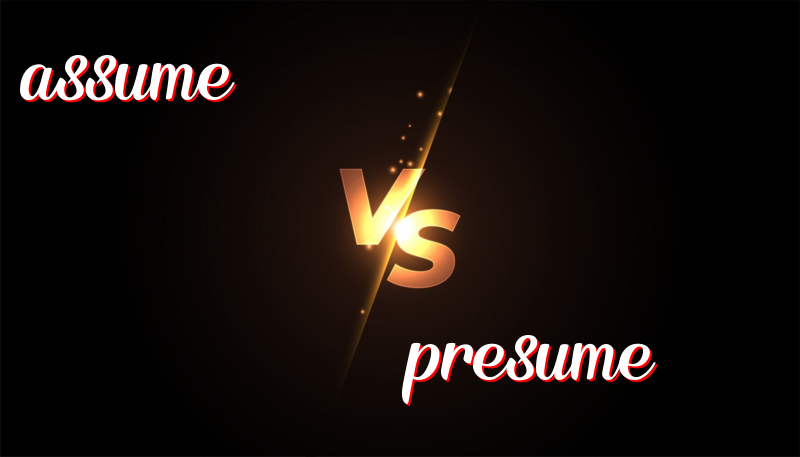Assume vs. Presume: Know the Difference
Understanding the Difference: Assume vs. Presume
In English, we often use the words assume and presume. While they seem close in meaning, they have small differences. Let’s explore them!
History
The word assume comes from Latin “assumere,” which means “to take up.” Presume also comes from Latin “praesumere,” meaning “to take for granted.” Both came into English a long time ago and have been used in many ways.
How to Use Them
Assume
We use assume when we have little or no information. It means to think something is true without being sure.
- Example 1: I assume the store is open.
- Example 2: He assumes his friend will help him.
- Example 3: She assumes it will rain today.
- Example 4: We assume he already knows the news.
- Example 5: They assume the dog likes them.
Presume
We use presume when we have some information or evidence. It means we think something is true and are more certain.
- Example 1: Since the lights are off, I presume she is not home.
- Example 2: After seeing his smile, I presume he is happy.
- Example 3: She is not here, so I presume she is late.
- Example 4: He didn’t call, so we presume he forgot.
- Example 5: With no response, they presume she agrees.
Trick to Remember the Difference
Think of assume as “a guess,” and presume as “a reasoned guess.” When you assume, you guess without much information. When you presume, you have some proof or clues.
Summary
To sum up, use assume when you’re not sure and don’t have much information. Use presume when you have some evidence or are quite sure. Remember, assume is like guessing, and presume is like being sure with clues.

Leave a Reply
You must be logged in to post a comment.